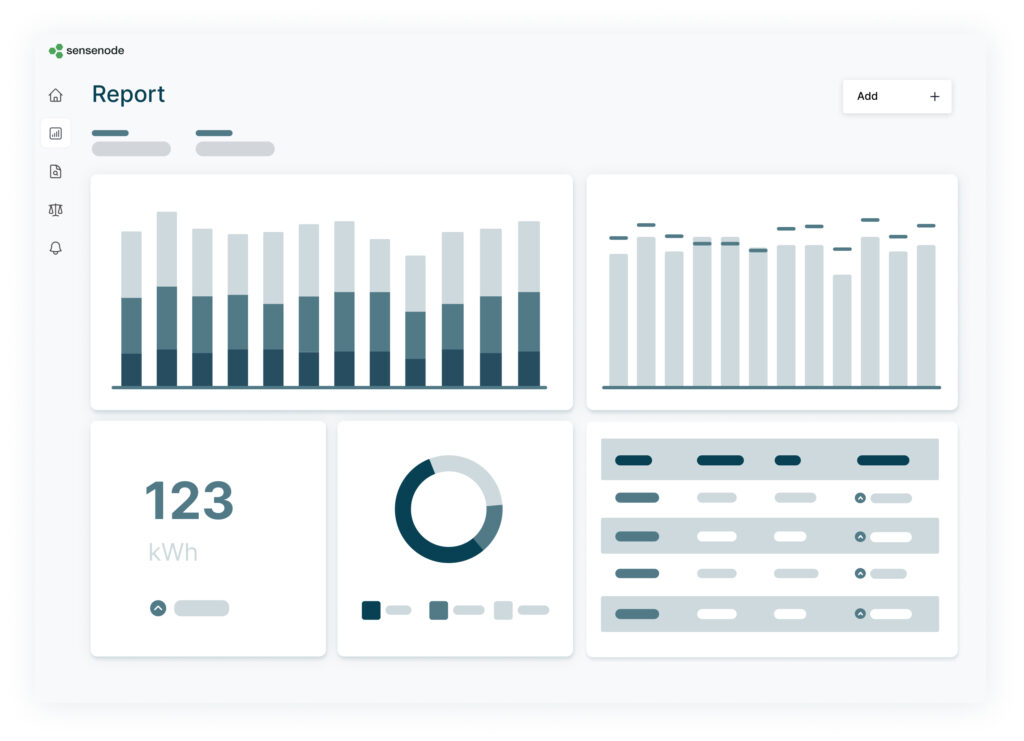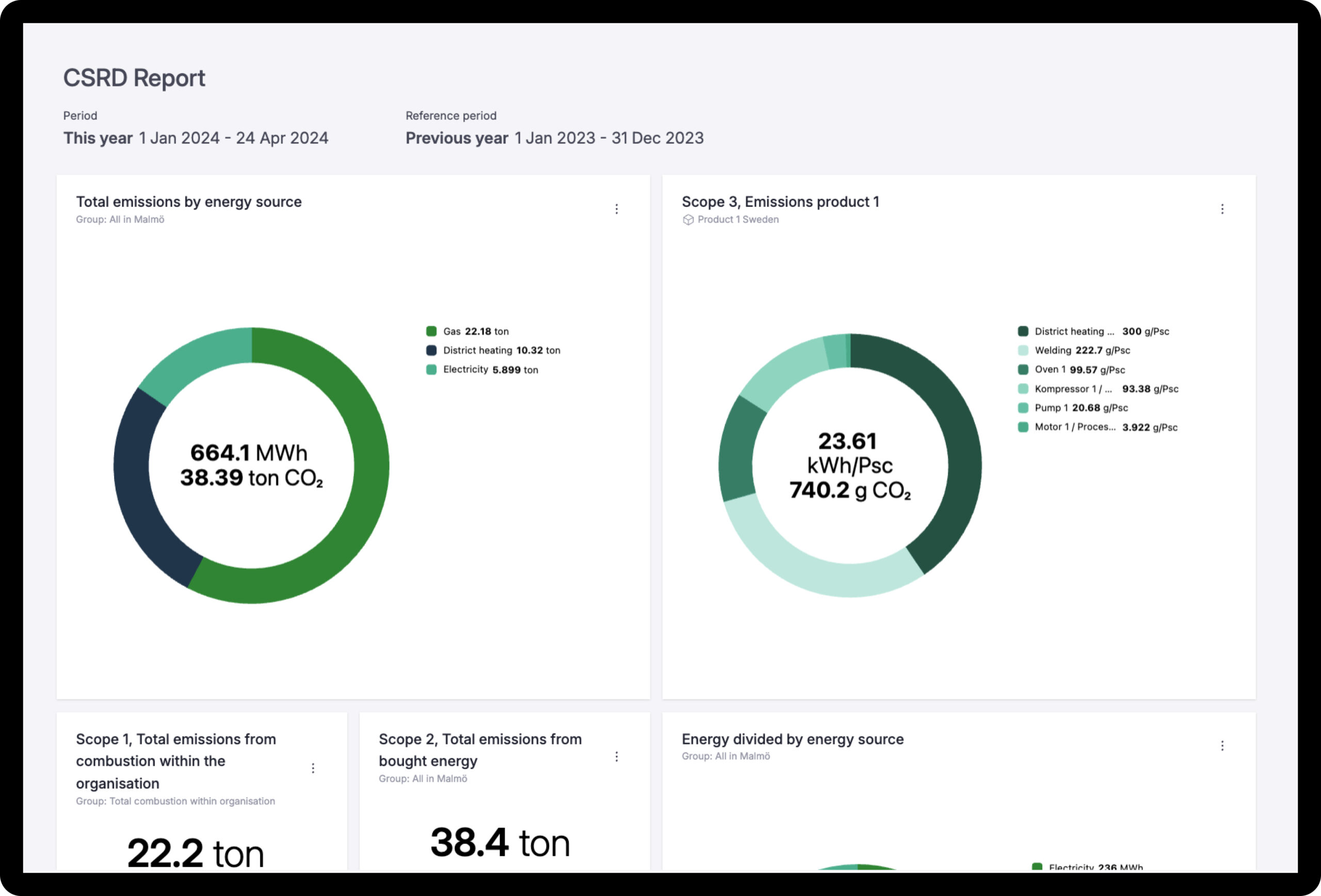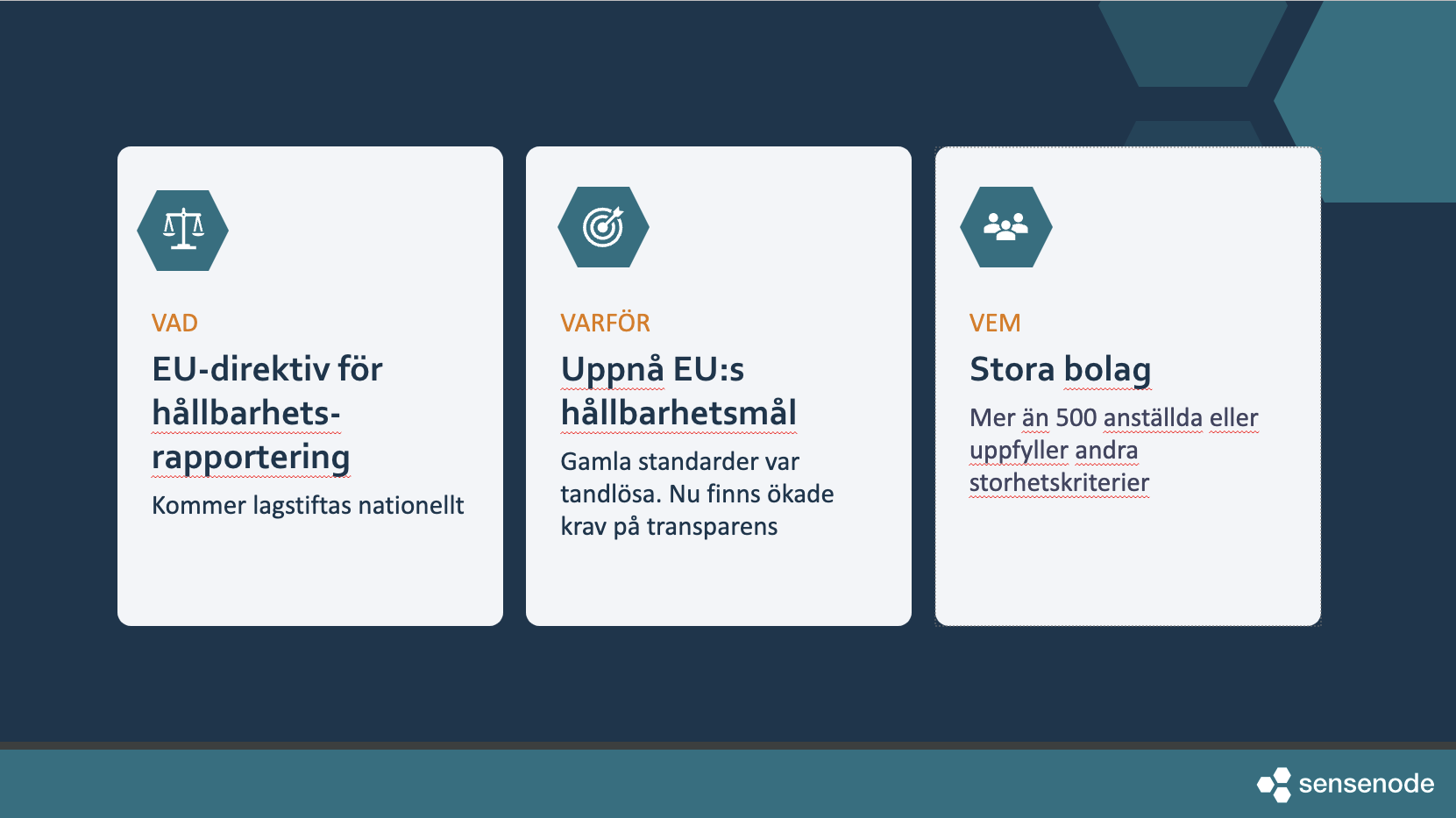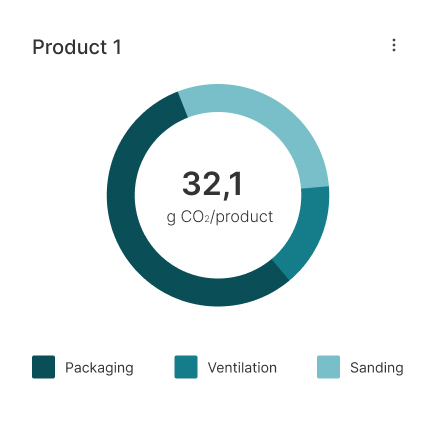

ENKLARE OCH BÄTTRE RAPPORTERING
CSRD-direktivet
CSRD (Corporate Sustainability Reporting Directive) är ett EU-direktiv som syftar till att förbättra företags hållbarhetsrapportering. Direktivet är en del av EU:s breda initiativ för att uppnå sina hållbarhetsmål. Genom ökad transparens gör CSRD det tydligare vilka företag som seriöst engagerar sig i hållbarhetsfrågor.
Att kontinuerligt mäta och genomföra hållbarhetsinsatser ger inte bara en konkurrensfördel. Det förstärker även företagets synlighet i hållbarhetsrapporter, särskilt gällande Scope 3-utsläpp.
- Automatiskt
- Transparent
- CO₂/enhet








